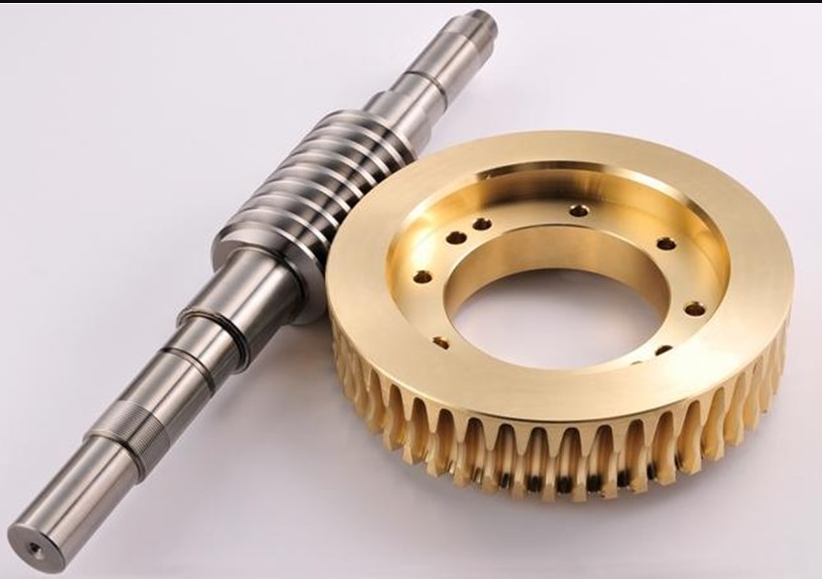A worm and worm gear is a type of gear system that consists of two main components:
1.Worm – A threaded shaft resembling a screw.
2.Worm Gear – A toothed wheel that meshes with the worm.
Key Characteristics
High Reduction Ratio: Provides significant speed reduction in a compact space (e.g., 20:1 or higher in a single stage).
Self-Locking Ability: The worm can easily turn the gear, but the gear usually cannot turn the worm (due to friction), making it useful for braking applications.
90°Motion Transmission: The worm and gear axes are typically perpendicular and non-intersecting.
Smooth & Quiet Operation: Due to sliding contact rather than abrupt gear teeth engagement.
Applications
Lifting Mechanisms (e.g., elevators, jacks)
Conveyor Systems
Valve Controls
Automotive Steering Systems
Machinery requiring precise motion control
Advantages
✔ Compact design for high reduction ratios
✔ High torque output
✔ Smooth operation with low noise
✔ Self-locking capability (in some designs)
Disadvantages
✖ Lower efficiency due to sliding friction (often ~50-90%)
✖ Requires proper lubrication to reduce wear
✖ Not suitable for high-speed or bidirectional applications (unless designed for it)
Materials Used
Worm: Usually hardened steel (for durability).
Worm Gear: Often bronze or brass (to reduce friction and wear).
Post time: Sep-02-2025






